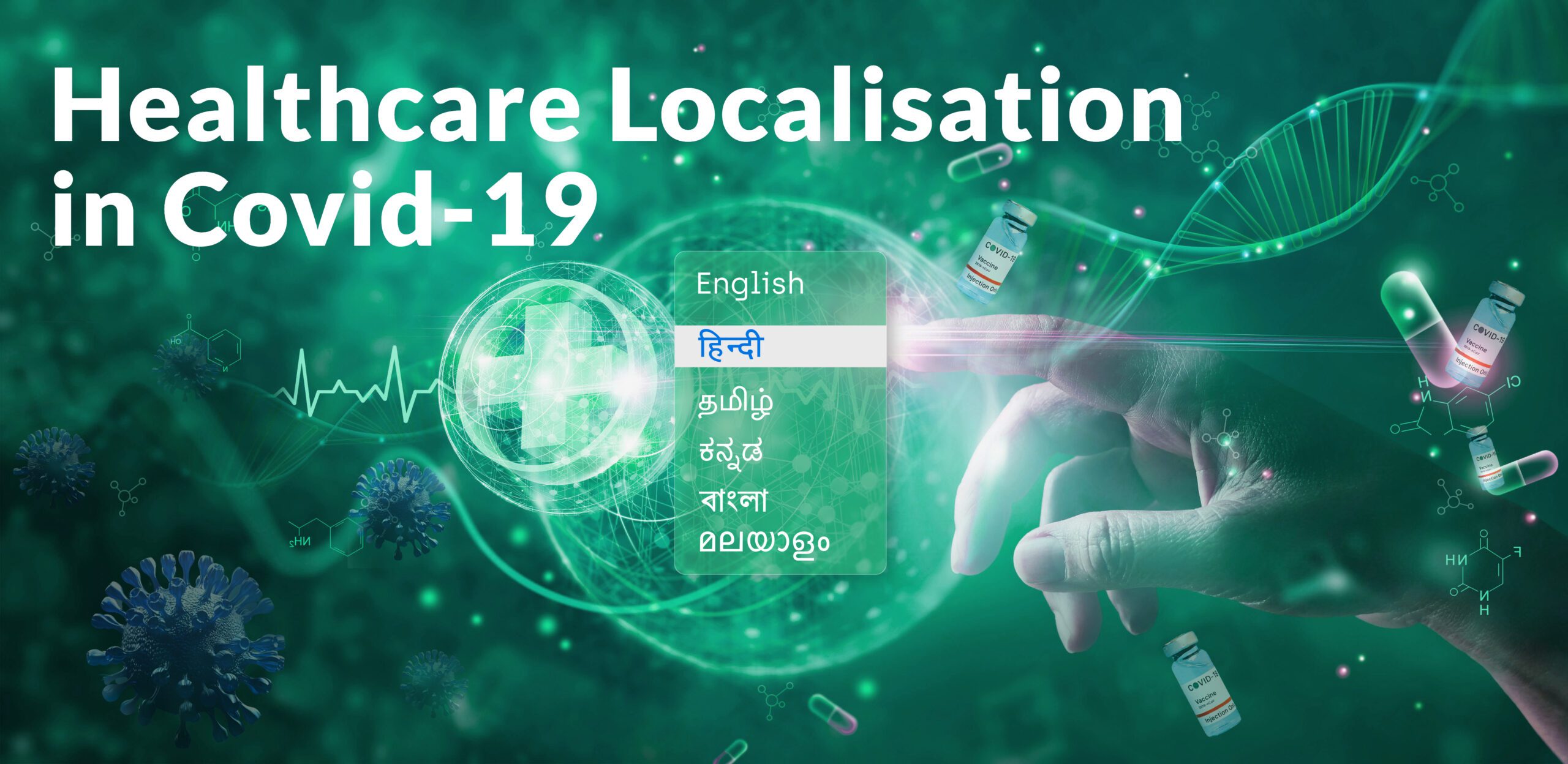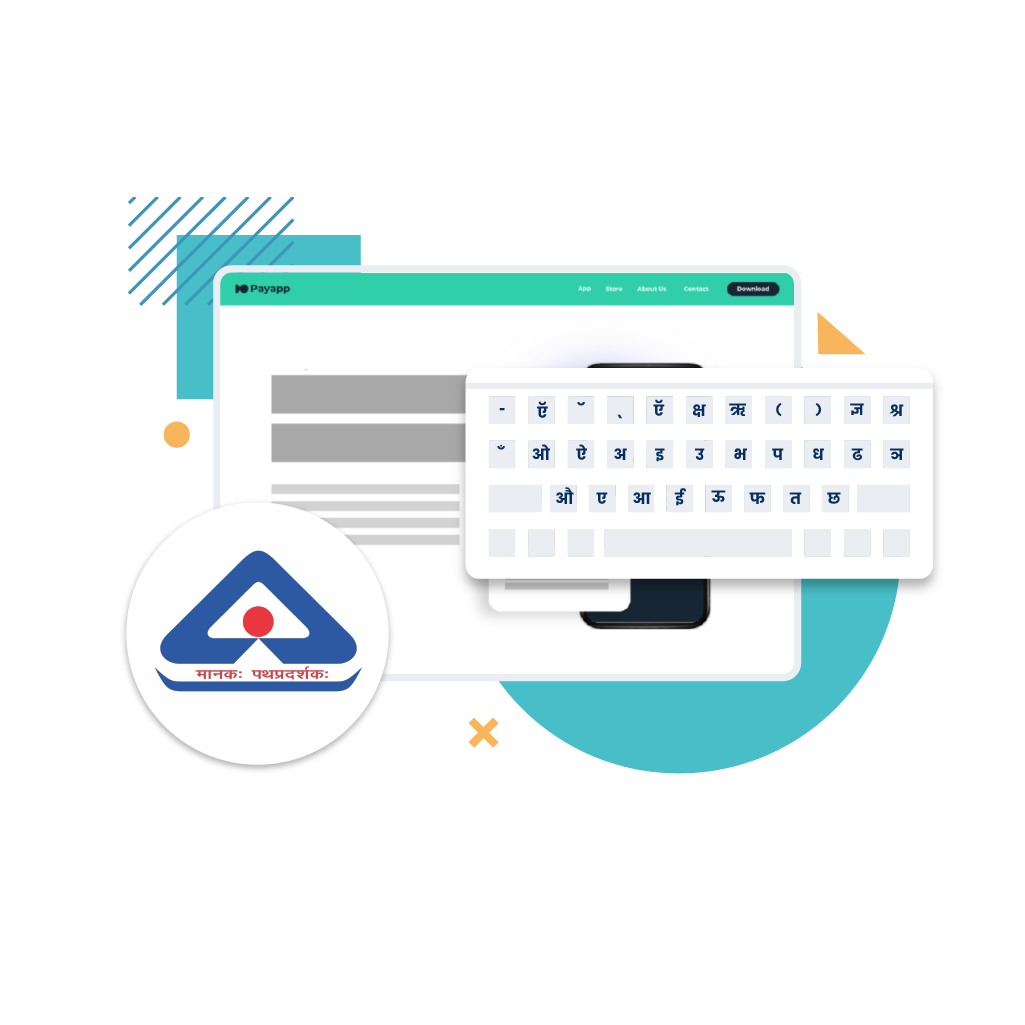Everyone was caught off guard when the COVID -19 pandemic emerged between late 2019 and early 2020. A serious disease that initially looked like an epidemic quickly spread to almost every country in the world and became a global pandemic
Considered one of the deadliest pandemics of all time, the coronavirus pandemic had a significant impact on the healthcare landscape in India and also had a far-reaching impact on society and the economy.
Numerous inefficiencies in the country’s healthcare system were exposed by the pandemic. However, the problems were not limited to the functioning of the health sector. Numerous pandemic-related problems related to the urgent need for localization of healthcare and multilingual healthcare solutions, were felt.
Also Read – Revolutionizing Digital Healthcare in India with language Localization
The little discussed issue of localization of healthcare and language barriers in healthcare in India
The pandemic has resulted in an enormous amount of written, graphic, and multimedia content being produced, shared, interpreted, and localised. This is in addition to the messages about genuine insights and discoveries, as well as important information about how to stop the virus from spreading.
Given that the Indian population speaks over 21 major languages [Source: www.education.gov.in], with English serving as the de facto standard for biomedicine, the issue of language barriers in healthcare has received surprisingly little attention in India.
That is why, in India, the need for health care localisation, multilingual healthcare solutions, and Healthcare Language Translation solutions is greater than ever.
Challenges faced during the pandemic due to language barriers
During the COVID-19 epidemic, multilingual crisis communication has become a global challenge. About 25 million Americans have limited, or no English proficiency and the issue of language access in clinics, hospitals, and the public health sector as a whole has persisted for a long time. The COVID-19 crisis has exposed the severe limitations of multilingual crisis communication that are caused by the predominance of English-centric global mass communication, the narrative undervaluation of minoritized languages, and the failure to recognize the value of multilingual repertoires for fostering trust and resilient communities.
The dire need to Localise content for the healthcare industry – why now more than ever?
Regardless of your first language, everyone deserves access to quality healthcare, which is why accurate healthcare translation is so crucial. Everyone must take great care to avoid any errors in this particular situation. Good communication is critical for saving lives.
Here we have outlined few benefits translation technology has for healthcare:
1) Accurate medical interpretation saves lives:
Language barriers must be rapidly addressed when someone is experiencing a medical emergency to avoid wasting valuable time. In order to make judgments that could save lives, the patient and the doctor must communicate effectively. The presence of an interpreter can mean the difference between the patient surviving a potentially fatal situation.
2) Healthcare institutions can save time with healthcare translation services:
An effective healthcare translation accurately translates clinical narratives, patient records, clinical structures, solutions, and guidelines so patients and clinical benefit suppliers can communicate clearly and concisely.In other words, with the assistance of a competent translation firm that provides medical translation services, interactions between patients and healthcare providers would flow smoothly, improving the quality of care provided to the ill.
3) Proficient Interpretation Services Improve Patient Care:
Accuracy is one of the main issues that hospitals face when it comes to interpretation and translation. Making sure that what was said in one language is accurately translated into another is crucial.Physicians can make informed decisions about the best care for patients who don’t speak their native language using well-translated patient data as a base.
Reverie’s Language Localisation Technology for the Healthcare Industry (All Reverie’s Technological Solutions)
In the digital world, Reverie develops technologies that are bridging the language gap. With Reverie’s Language-as-a-Service (LAAS) platform, content from apps and portals can be delivered in multiple languages in real time.
The Reverie Language Platform provides real-time delivery of static and dynamic content in multiple languages from apps and portals. Reverie offers domain-savvy language localization services for a variety of clientele, including those in the healthcare, banking & finance, government, entertainment, and educational sectors. In a beta launch, Reverie has also opened up its platform to app developers.
Reverie Language Technologies Limited integrates video, voice, and text in 22 Indian languages using custom full-stack, AI/ML-driven end-to-end solutions.
Reverie is on a mission to become the platform of choice for voice and text-based multilingual healthcare solutions and support and to act as a catalyst for Healthcare Language Translation Solutions. Reverie has worked with 140 prestigious clients across 10+ verticals specializing in contextual and domain-specific language localization solutions.
To ensure that our multilingual healthcare solution remains true to its source, we deploy QA teams, create and manage terminology guides, and create customized healthcare localisation solutions for each medical and healthcare specialization.
Use Cases: Reverie’s multilingual healthcare solution and Healthcare Language Solution
Most healthcare apps only offer consultation services in English, which caters to a small percentage of English-literate Indians—roughly 20% [Source: englishraven.com]. Localisation of online appointment booking can dramatically increase the number of people who use healthcare apps. It will necessitate both the transliteration of dynamic content such as the doctor’s name and address and the localization of the user interface.
Leading Healthcare Consultation Providers, India’s leading doctor consultation app, has partnered with Reverie to offer multilingual healthcare solutions and to improve user engagement across its platform in multiple Indian languages.
40% of Practo’s patient communications SMSes are now sent in 11 Indian languages, thanks to Reverie’s LaaS solution. The preference for Indian languages among users demonstrates a significant demand for receiving communications in an Indian language. Practo has used Reverie’s cutting-edge language technology solutions to send over 1 lakh SMS messages and translate 27,000 words.
When it comes to digital healthcare, appointment and consultation are not the only options. The abundance of fitness tracking apps is also encouraging health-conscious individuals to achieve their health objectives. However, there is a lack of user inclusion and engagement through multilingual healthcare solutions in this area as well.
Given the potential number of Indian language internet users, healthcare apps should consider language localization now to increase reach and user engagement.


